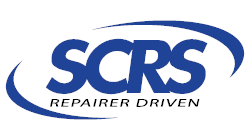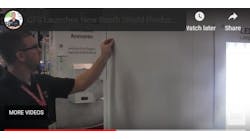LAS VEGAS, Nov. 2, 2017—The Collision Repair Technology Summit closed its third session with one of the industry’s most pressing topics: liability.
“The hidden dangers” of technology and liability were presented in a panel with some of the industry’s most knowledgeable stakeholders including Todd Tracy, of the Tracy Law Firm which handled the acclaimed John Eagle Collision case which recently reached a $42 million verdict.
Other panelist included Erica Eversman of Vehicle Information Services, Mark Allen of Audi of America and Aaron Clark, former collision shop owner and now currently with Assured Performance. The panel was moderated by John Ellis of Ellis and Associates.
Approximately 1.25 million people died last year due to auto accidents, a statistic that Ellis opened the session with, claiming that autonomy is working to stop death from happening.
“We are moving to full autonomy," he says. But the greater question becomes, “How do we as a collision repair industry prepare ourselves for a world in which the vehicle is more than steel?”
Ellis says the challenge is knowing how to repair a car to the same standard, if not, better than the OEM.
The panel took questions from the audience, in which Eversman touched on the consequences of failing to repair a vehicle correctly. “Liability is very, very real,” she says and in addition to being devastated, you can kill someone, end up in jail, lose your business or a combination.
However, liability is a concern due to the industry’s heavy reliance on DRP relationships with insurers. And as Tracy puts it, the court made its decision on the verdict against John Eagle because the collision shop chose to be “bullied” by its insurer.
Eversman recommends that when an insurer is not allowing you to move forward with a proper repair, be sure to communicate that with your customer, and be honest.
“[Tell them] We’re repairing your vehicle safely and properly because we are the experts,” she says.
Allen says that the collision repairer is a “doctor,” and has to hold up to those standards. Which brought Eversman to the point that collision shops rarely have any training requirements or registration processes.
Using the analogy of a doctor, she says that a doctor can’t just perform open heart surgery as they please, so shop owners shouldn’t hire who they want, put them on the floor and start repairing people’s vehicles without any standards.
Amongst other topics was OEMs verbiage usage in repair procedures, specifically verbiage such as “recommend” instead of “required.” Allen says that the realism of it is to comply with legislation and laws which state that OEMs cannot say “must” or “required.”
Eversman, who also runs a small private practice added that OEMs cannot use “required” because that would mean that legally they have to pay for the repairs. But, whenever you as a shop owner reads “recommend,” read it as “required!” she says.
So, what happens if the OEM does not have a written procedure?
Allen recommends that you either confer with industry friends, go through the manufacturing facility themselves, or utilize online resources such as I-CAR.
Tracy’s recommendation is simple. ““Research. Document. And Inform,” He says.


